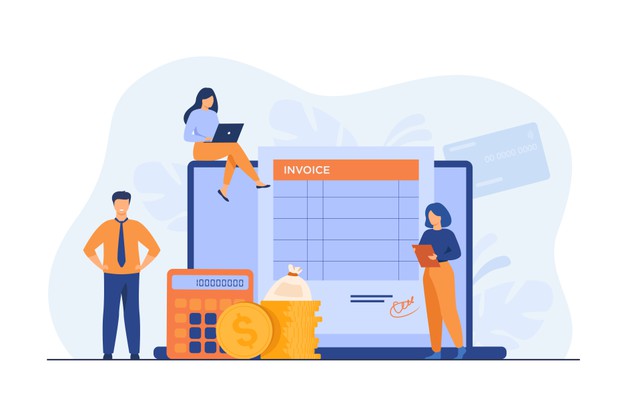What Is Payroll?
Payroll is the total of all compensation a business must pay to its employees for a set period of time or on a given date. Payroll usually managed by the accounting or human resources department of a business. Meanwhile, small-business payrolls usually handled directly by the owner or an associate. Company can also use professional firms services to handle payroll and payslip processing, employee benefits and insurance, and accounting tasks such as tax withholding.
Payroll can also refer to the list of employees of a business and the amount of compensation due to each of them. It is a major expense for most businesses and is almost always deductible, meaning the expense can be deducted from gross income lowering the taxable income of the company.
Payroll in Singapore
Processing payroll in Singapore involves specific rules and regulations – and should take the status of foreign workers into account. There are no monthly withholding obligations for employers in Singapore but contributions to social security schemes, including the CPF, the Skill Development Levy and the Foreign Workers Levy, are required.
Singapore has legislation which requires itemized payslips to be issued to all employees – it is legally acceptable to issue payslips online. Payslips must include details of employment such as date of payment, basic salary amount, deductions made, and net monthly salary. Foreign companies setting up in Singapore may choose to engage a global payroll provider to help them navigate the city’s compliance regulations, and ensure that their employee populations are paid accurately and efficiently

How to ensure a successful payroll management
Similar to all other countries in Asia, payroll management in Singapore in 2020 covers more than just a list and number of people your business employees and what they should be paid. It’s more than just being knowledgeable about tax information, CPF, deductions and complying with Singapore legal requirements. An efficient payroll process is essential to keep your employees motivated to deliver and perform excellently. Check these list of some points employers need to consider and be mindful about payroll.
1. Salary Definition
refers to basic income wages and allowances rate that covers payment for work done under a contract of service.
2. Salary and Payslip
Salary and payslips must be delivered at least on or two, three times a month or at shorter intervals.
3. Itemized Payslip
Employers should issue itemized pay slips to all employees covered by the Employment Act, Appendix 8A and Appendix 8B which should enumerate the essential details including basic salary and allowances, date of payment, salary period, overtime pay, annual leave and all deductions made.
4. Detailed Employment Records
Employers must keep detailed employment and salary records of their local and foreign employees for tax purposes, while records of ex-employees should be kept for one year after leaving.
5. Incomplete Work Months
For incomplete work months an employee’s salary and annual leave should be prorated according to the contract, where an employee will only be entitled to the prorated portion of his salary for those days of the month that he worked.
6. Overtime Work
For overtime work, company are expected to pay at least 1.5 to 2 times the hourly basic rate of pay. Also, mployees can only work up to 72 overtime hours in a month. Payment for overtime work should be made within 14 – 18 days after the last day of the salary period.
7. Mandatory levies, contributions, and statutory requirements
Mandatory levies, contributions, and statutory requirements should be strictly complied with. In Singapore, other than the Central Provident Fund (CPF) contributions, employers are also required to make the monthly contributions for the following:
- Skills Development Levy for training grants for when you send your employees for work-related trainings
- Ethnic funds aimed at helping the less privileged in the respective ethnic communities such as CDAC, MBMF, ECF, and SINDA
- Levies for foreign workers with Work Permits
- CPF contributions

Itemised Pay slips
From 1 April 2016, all employers must issue itemised pay slips to employees covered by the Employment Act. The payslip must be given together with payment to employee. If unable to give together, it must be given within three working days of payment. In the case of termination or dismissal, employers must give pay slip together with outstanding salary. The format can be either Soft or hard copy payslip.
Payroll Dispute
Payroll dispute can hurt employee morale and make them question the company’s credibility. If employees want to deal with the problem, they are going to spend their time away from work. This will also burden the person in charge of the payroll because they need to check it again manually and then decide how to resolve the issue. This is one of the reasons why companies need an automatic payroll system.
Nowadays, companies tend to use any technologies to help their works. Falling behind on core technologies usually means falling behind the competition and payroll is no exception. Technological development built to speed up manual processes. So, HR department can focus more on wider strategic goals and people management.

Why Payslip is Important
A payslip is not just the product of the payroll process. It is more than that. It’s the employees’ livelihood. Because of that, the process of getting a payslip is very important. There can’t be any error on it. If your current payroll process is still manual, there will be a lot of risk than just employees who report their inaccurate payslip. So, what are the reasons for your company to upgrade to an automatic payroll system?
Stay Competitive
As said before, failing to adopt the latest technology can make your company falling behind competitiveness. You need to stay on top of your competition and that includes using the latest technology on the payroll too. With an automatic payroll system, your company especially HR department can make better processes for payroll. So, your HR department doesn’t have to manually calculate payroll every month.
Eliminate Inaccurate or Late payslip
Inaccurate or even late payslip can impact employees’ retention and employees’ value on the company. This is why payroll calculation can’t be wrong and need to be on time. Most of the employees are usually expecting to be paid accurately and on time. When they get paid inaccurately they might spend time to ask the person in charge to correct their payroll. If the company late on paying the payroll, employees might find it hard to motivate themselves to work.
Integration With Other Systems
The research from Access Group about Guide to Payroll in 2020 shows that, 93% of payroll managers believe up-to-date software is ‘essential’ to the running of their department. Often, payroll sits between HR and finance, and these two departments often reporting directly to each other. A centralized platform is important for any business that wants its payroll process error-free and can be integrated with another system such as an accounting system. Because the payroll process is not only on HR department responsibility.
Reduce your time spent on processing payroll. Easy CPF submission, salary disbursement and IR8A, consolidate payroll report. All in just a few clicks with HRMLabs. Book your demo here



